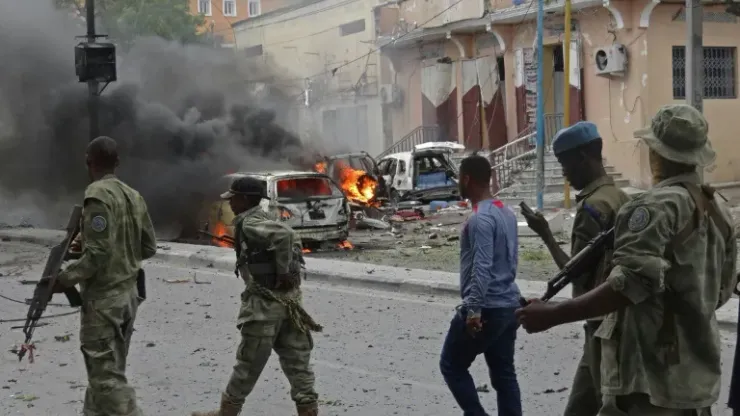Mogadishu (AFP) – Football fans in Mogadishu were preparing Friday to cheer on their teams in the first night-time match since chaos descended on the Somali capital nearly three decades ago.
The tournament for 16- and 18-year-olds at the Konis Stadium, renovated by FIFA, will be played under tight security because of the constant threat posed by the Shabaab Islamist group.
“This is going to be a great moment for the country and football fans. It was in 1988 that the last night game was played in Mogadishu,” said Omar Ibrahim Abdisalam, a spokesman for the Somali Football Federation.
The federation hopes that if the game unfolds without a major incident, it will open the door to similar matches.
Hanad Gulled, a resident of Mogadishu, said: “It is a step towards peace and stability after so many years in the darkness. If Somalia can once again consider matches in the evening in Mogadishu, then we are not so far from returning to the former peaceful days.”
However, Gulled said that for security reasons, he will watch the meeting on television.
Shabaab have shown in recent months that they have the capacity to carry out large-scale attacks in the centre of the capital, with vehicles stuffed with explosives or by armed commandos.
“It’s a positive development, but as far as I’m concerned, it’s better to watch the game on television than to go to the stadium,” Gulled said.
Local journalists were enthusiastic.
“This is a first in 30 years and I really want to cover the game tonight, not only for the meeting but also for the fervour of the spectators who will be at the stadium for this historic evening,” Abdifatah Arizona said.
Since the fall of President Siad Barre’s regime in 1991, Somalia has been plunged into chaos and violence, supported by clan militias, criminal gangs and Islamist groups.
Shabaab want to defeat the fragile Somali central government, backed by the international community and the 22,000 troops of the African Union Mission to Somalia (AMISOM).
They were driven out of Mogadishu in August 2011 and later lost most of their strongholds, but they still control vast rural areas.
200+ Channels With Sports & News
- Starting price: $33/mo. for fubo Latino Package
- Watch Premier League, Women’s World Cup, Euro 2024 & Gold Cup
The New Home of MLS
- Price: $14.99/mo. for MLS Season Pass
- Watch every MLS game including playoffs & Leagues Cup
Many Sports & ESPN Originals
- Price: $10.99/mo. (or get ESPN+, Hulu & Disney+ for $14.99/mo.)
- Features Bundesliga, LaLiga, Championship, & FA Cup
2,000+ soccer games per year
- Price: $5.99/mo
- Features Champions League, Serie A, Europa League & Brasileirāo
175 Premier League Games & PL TV
- Starting price: $5.99/mo. for Peacock Premium
- Watch 175 exclusive EPL games per season






